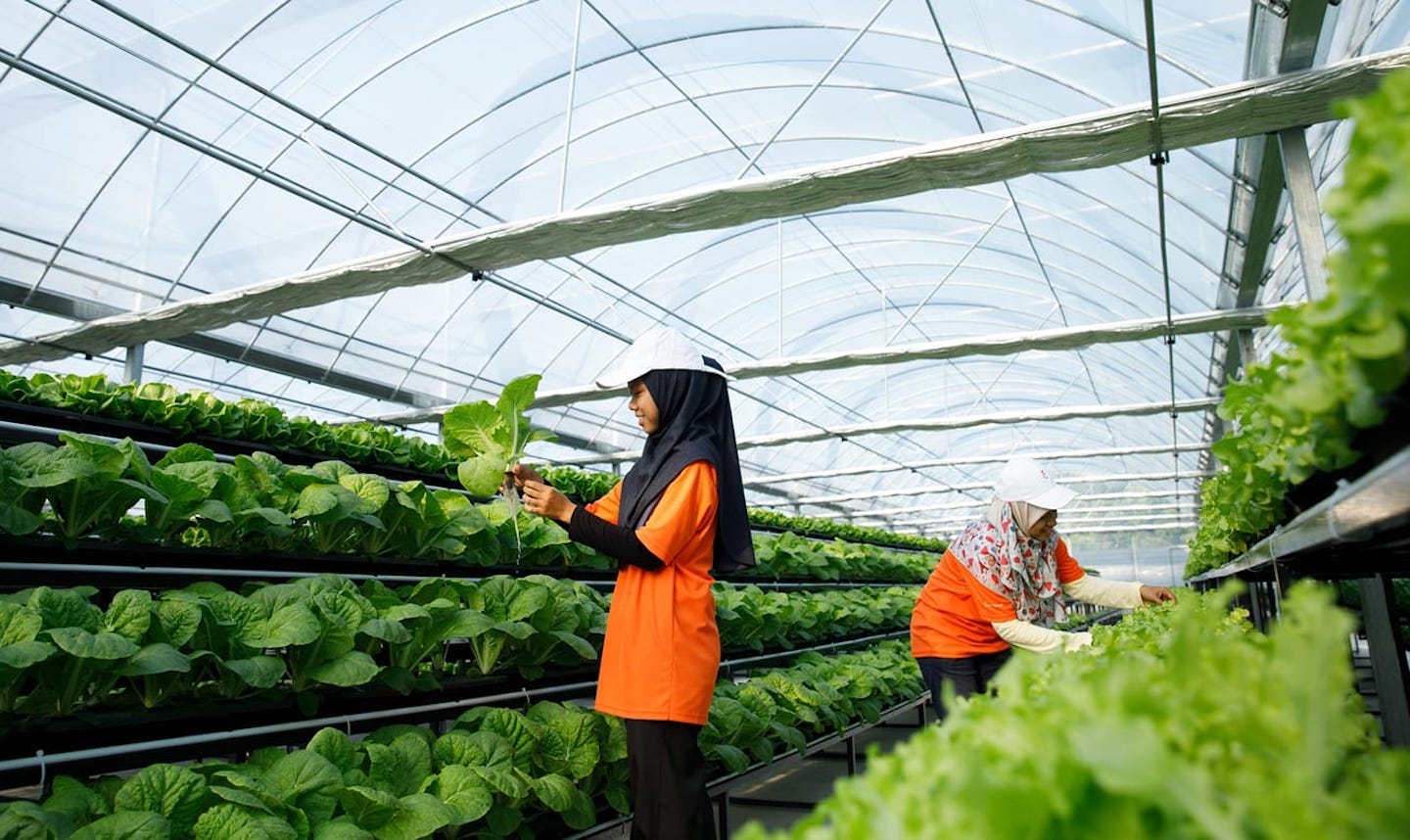
Cultiveat is a tech-driven, sustainable large-scale producer of quality vegetables located in the lowlands of Malaysia (Photo: Cultiveat)
The word “pivot” has come to characterise current businesses, especially during the past year or so. From multimillion-dollar companies to your local coffee shop down the street, the plight brought by Covid-19 has been — and is still — palpable and unforgiving to all. And unless you adapt to the change, you risk being swallowed by it.
The same strategy applies to all industries at all levels. Take agriculture, for example. Even though this primary sector is essential for cultivating produce to feed the nation and export to other countries, the hindrances brought upon by the pandemic have immobilised its regular gears. And sadly, time is always ticking for perishables.
“Vegetables, unfortunately, are not something you can keep in your warehouse to sell when things recover,” said Cultiveat’s head of marketing Charmaine Kon in an email interview. Cultiveat is a tech-driven, sustainable large-scale producer of quality vegetables located in the lowlands of Malaysia.
“Since we sell a large proportion of produce to F&B businesses, which are impacted at this time (no dine-ins), we see a lot of cancelled orders,” she added.
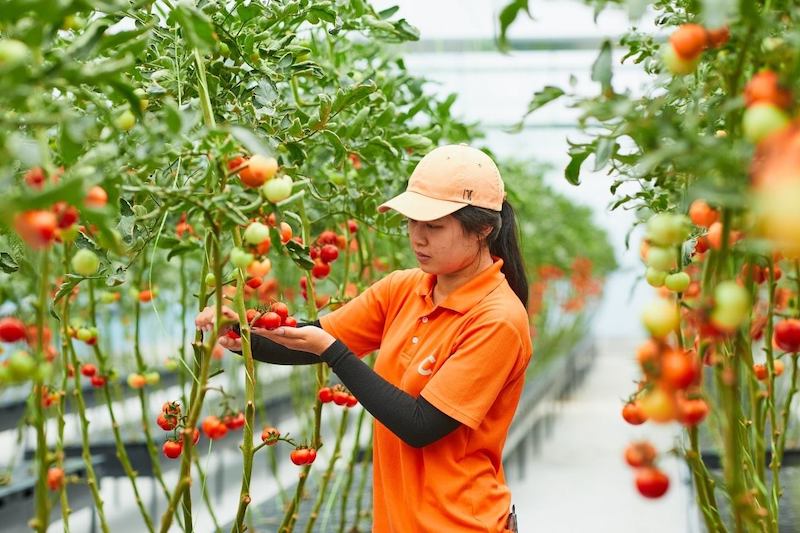
This unpredictability and inconsistency in orders have led many farmers to take matters into their own hands. When the first Movement Control Order (MCO) was implemented, they began selling their produce to end consumers and households directly — first, to clear inventory and prevent wastage; second, to bypass the middleman and also to reclaim a sense of control.
In fact, consumers who wanted to avoid contact with other panic buyers hoarding the supermarkets were happy to pay the extra charges for fresh produce to be delivered to their homes. Think of this as farm-to-table service.
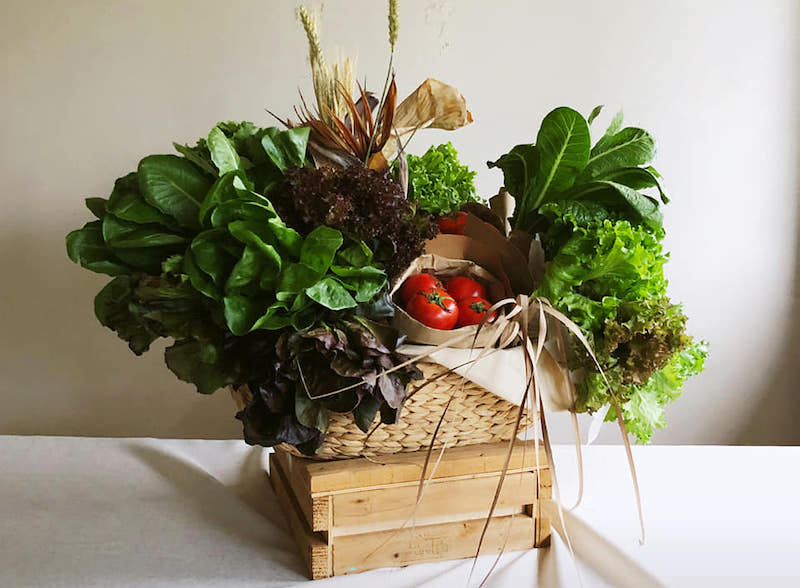
However, unlike returning clothes that don’t fit well, you can’t return groceries if they don’t look good. There’s always the concern of not receiving the freshest picks or worse, getting what’s left at the bottom of the barrel. But these would be the least of your worries if your order came from reliable producers such as Cultiveat.
Driven by technology-enabled measures, Cultiveat’s precision farming methods create the perfect environment to sustainably yield high-quality crops. The temperature and light in the indoor vertical farms are regulated with energy-efficient cooling systems, which channel rainwater through the walls of the farm and semi-automated roofing that opens and closes to let just the right amount of light in. Furthermore, no pesticides and harmful chemicals are used.
“Our farming system ensures that almost 100% of our produce are Grade A," Kon said. "We also perform regular quality checks before delivery and pride ourselves in our customer service, should customers face any issues."
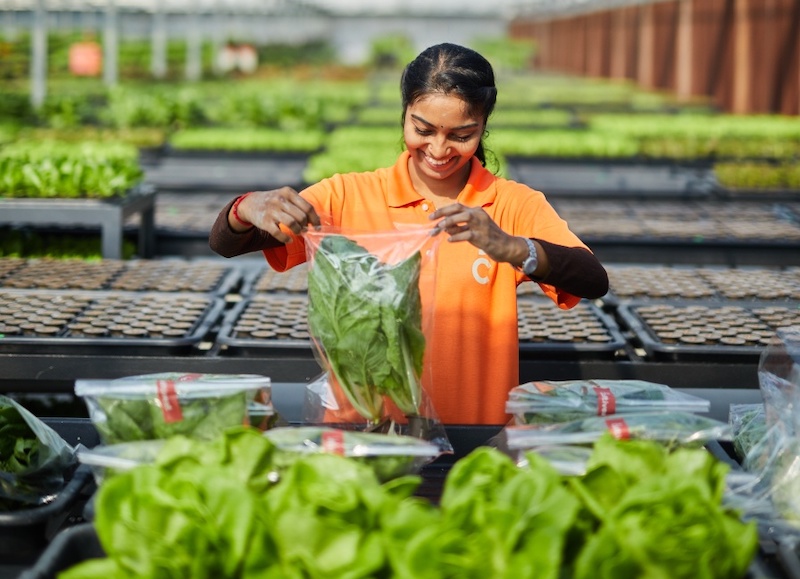
Their vegetables, ranging from varieties for stir-fry, lettuce mix for sandwiches to fragrant herbs, are packed at the farm and delivered as live plants in biodegradable cartridges. “This means maximum shelf life with nutrition and flavour retention. Customers often send us photos and tell us about how their veggies are still good to eat after one or two weeks,” Kon elaborated.
The pandemic did not spare other local farmers and vegetable delivery services too, which suffered from financial losses due to lower demand from the F&B industry. Co-founder of hyperlocal farm BoomGrow Jay Desan is grateful that her business is insulated from some of the issues affecting food producers such as obtaining import permits and overcoming supply chain restrictions. Although BoomGrow does not suffer any logistical delays caused by the MCO, the ramifications of the pandemic are still very tangible.
“Covid-19 has impacted our overall sales because we are also a B2B supplier. Hotels and restaurants had to reduce their orders during the MCO. Having said that, we’ve seen a surge of customers subscribing to our veggie bundles since people are still wary about heading out for their groceries.”
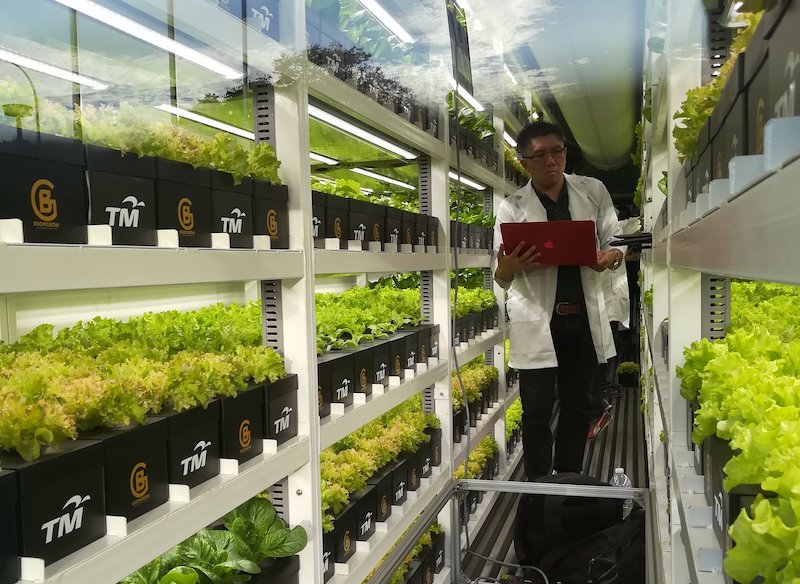
BoomGrow’s ethos stems from a will to overcome food shortages caused by population growth and environmental damage such as global warming. After spending years to create methods of growing produce that ensured safety, nutrition and taste, BoomGrow has developed “precision farming”, a data driven technology that aims for consistent yield and quality. Using modular plant racking system that enables a variety of cultivars to be planted, as well as customised LED lights to ensure optimal growing conditions, the company’s indoor farm is climate controlled for a year-round harvest. The tech-based indoor agriculture company promises zero pesticides and no harmful chemicals — just clean greens and pure nutrition.
“By maintaining the seed to plate integrity, we are able to deliver fresh and nutritious produce to the community. Ultimately, our goal is to contribute towards ensuring food security in Malaysia in a manner that’s kind to the environment and consistent with our values.”
The wastage of fresh produce reflects the profound economic turmoil wrought by the virus and how difficult it has been for huge sectors of the economy — like agriculture — to adjust to such a sudden change in the way they operate. To ensure the efforts of our farmers don’t go to waste, here are three more vegetable and grocery vendors you can seek out to help put food on your table, as well as theirs.
Plucked
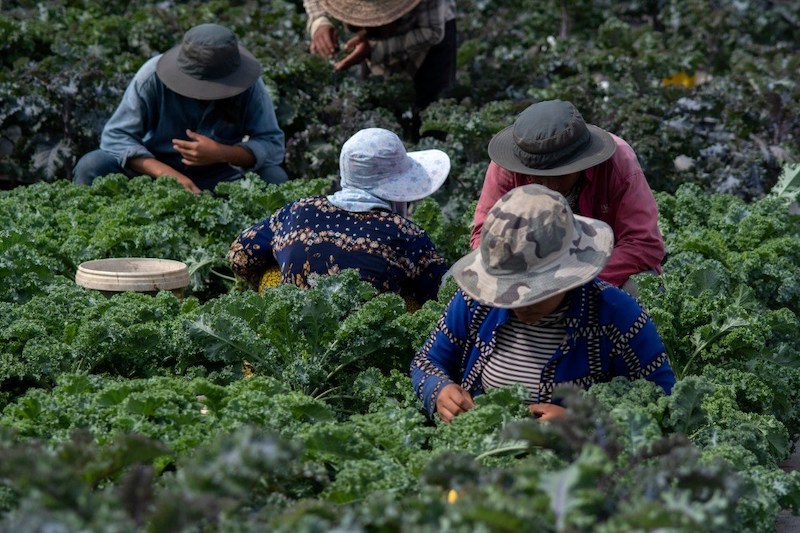
It all started with an ambition to supply organic vegetables that are toxin- and pesticide-free at reasonable prices to all Malaysians. Managed by husband-and-wife Wong Wing Kin and Chia Tsu-wen, Plucked’s farm in Janda Baik, Pahang has been supplying major supermarkets in KL with organic goods, particularly its specialty: kale. Known as a superfood that’s jam-packed with antioxidants as well as vitamins C and K, the versatile kale — available in several varieties such as curly kale, Tuscan kale and red curly kale at Plucked — can be juiced, blended, cooked or eaten raw.
See more here.
Veggies.my
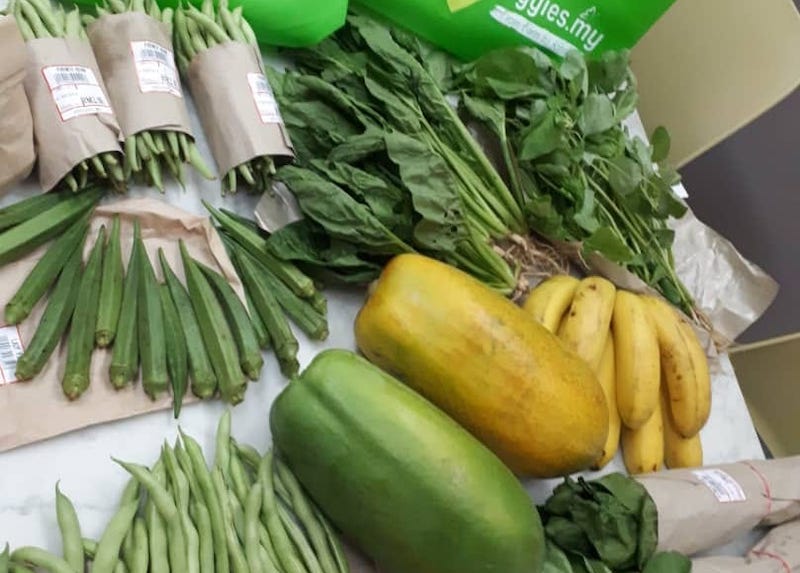
Empowering small farmers is at heart of Veggies.my’s mission so that they can be better compensated for their labour. Launched in January 2020, just before the pandemic outbreak, the company has served more than 1,300 customers with more than 20,000 produce sourced from local farms. Not only has Veggies.my provided free produce to aid 500 urban poor families during MCO, it has partnered Dignity for Children Foundation to feed 1,200 children, staff and volunteers. Apart from fresh produce, stock up some condiments and pantry staples such as Bario rice, organic black pepper and sauces, which are also sold on their website.
Purchase here.
Everleaf Eco Solutions
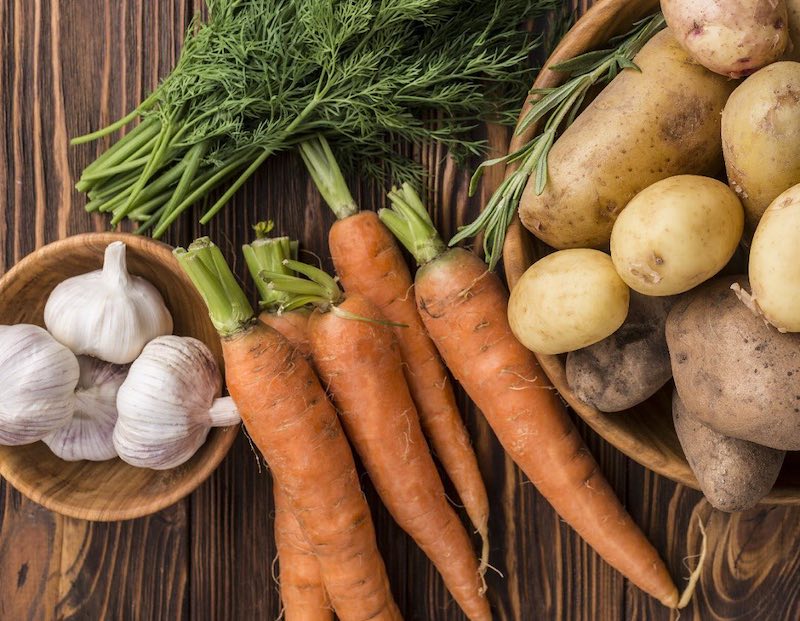
The founders may not run a farm on their own but Everleaf bridges the gap between growers and customers seeking healthier dining options. In 2017, Clarence Chin and CK Chia left their careers in engineering and banking respectively to set up a platform that allows users to conveniently procure organic vegetables, fruits, poultry, eggs and even artisanal products. Everleaf supports sustainable farming, while encouraging consumers to practise clean eating and minimise food processing, as well as to be more mindful about the source of their ingredients.
See more here.


